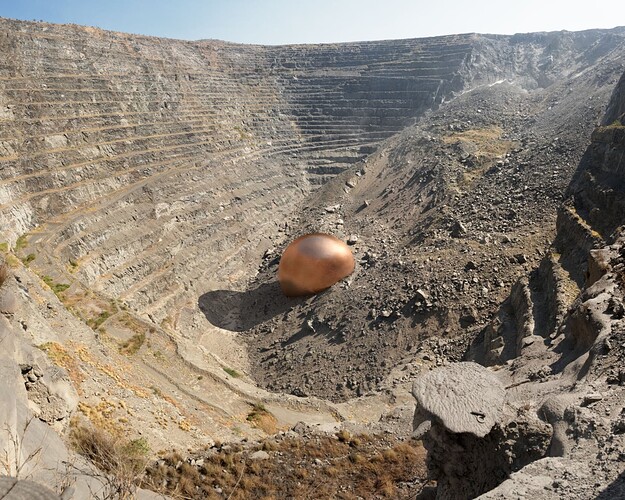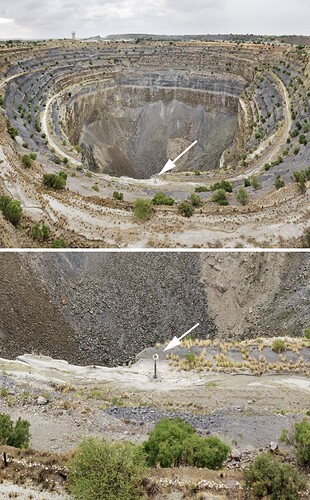In 2010, the most affluent 10% of households emitted 34% of global CO2, while the 50% of the global population in lower income brackets accounted for just 15%. By 2015, the richest 10% were responsible for 49% of emissions against 7% produced by the poorest half of the world’s population… cutting the carbon footprint of the wealthiest might be the fastest way to reach net zero.
Lots of lazy generalisations, I guess I’m included in the 10% of the world’s wealthiest as are many other on here but I don’t consider myself wealthy nor have a great carbon footprint.
Well over those years of austerity, Lear and several makes of top marques had solid order books so believe what you will.
As soon as the media mention ‘the top 10%’ people assume it doesn’t apply to them but millions in the UK, France etc are in that bracket. The focus should start at the very top with those that can afford a Lear jet not you or I.
I don’t know if you’re in the 10% richest in the world Tim - actually I don’t even know if I am!
I do know that in the worst-polluting of the large economies - USA - about 100 million people, nearly a third of the population, are in the richest 10% of all the world’s people - and by chance this 100 million Americans constitutes about a third of all the world’s most polluting people.
The next highest numbers are in China, but although “the total emissions produced in China divided on a per capita basis have now surpassed those of the European Union, the per capita lifestyle consumption emissions of even the richest 10% of Chinese citizens are still likely to be considerably lower than the richest of their OECD counterparts… because such a large share of China’s emissions is from the production of goods consumed in rich countries.”
France compares pretty well - around the middle of the OECD economies in terms of average emissions per capita, way behind the US and UK, for example - and because its also small compared with China, etc, my guess would be that most of the people in France falling in the richest 10% of the world’s people, are also in or not too far from the richest 10% of French people.
None of us are ‘off the hook’, of course - we all need to do what we can - but the political point is that we should expect the richest to make the fastest and most dramatic changes to their lifestyles. So, really, nobody should have a Lear jet!
Except that you would have to surgically remove the huge ego attached to such chattels
A net worth of $100K puts you in the world’s 10% wealthiest according to various studies so that’s why 100 million Americans and I would guess a large chunk of the French population would fall into that category, what sets the average American apart from people in other countries is their ‘over the top’ consumption.
I can’t access that article without disabling Adblock etc - my figures were from the Oxfam report linked earlier.
What did become clear when I did a quick search (including the Credit Suisse Global Wealth Databook) is how confusing the figures are! Most figures are for household wealth for a start; some are for adults - but that’s obviously no good for environmental impact purposes - I couldn’t find any at all that included children.
But an even bigger question that immediately came up was ‘what counts as wealth?’ For example private pension funds, which you can’t actually access (unless in a ‘drawdown’ arrangement - but then you still can’t actually get your hands on all of it because it will be subject to tax). Similarly mortgaged property: the debt is very real, but the off-setting ‘value’ of the property only theoretical (a legal charge over any asset means you don’t really own it).
The huge difference (according to Wikipedia) between median (in Europe $26,423 per adult) and median ($174,836) is also telling - the story of inequality…
But anyway these are just my statistical ramblings - I don’t think they alter the overall conclusion (that the wealthy and privileged need to change most - redistribution of wealth goes hand-in-hand with curtailing environmental impacts) - and I agree that the over-the-top consumption of the Americanised lifestyle is what we need to throw in the bin - so we can throw less of everything else in it!
The premise of the article is right but it would have been better if it was made crystal clear that millions of us are in the wealthiest 10%, using words like ‘rich’ or ‘wealthy’ actually hides the fact.
On the theme of ‘redistribution of wealth goes hand-in-hand with curtailing environmental impacts’ - so good to see this red-green politics taking control in Chile…
Climate lawsuit in Montana USA, in 2023, could be interesting….!
Good news - parallels cases here in Europe (including France) that are trying to make governments actually stick to legal constitutional or treaty environmental obligations.
There have been and are ongoing cases in the US based around big tobacco, big oil and big pharma knowingly damaging people’s health and well-being. The fact that they knew their products were actually killing people, but went on selling them and tried to conceal or muddy the evidence should be legally decisive.
But again - as the UN itself has calculated - if we really adopted the ‘polluter pays’ principle none of the big multinationals would be viable!
Social Enterprise recycling waste from hair and beauty salons looking to replicate in France…
A different way at looking at things…
The remains of one copper mine in Africa. How much energy I wonder was used to extract 4.1 million tons of copper, represented by the golden ball.
Similarly, the diamonds extracted from this excavation, amounted to the equivalent of one diamond weighing 7.6 million carats or 1,400 kilograms, if my maths is right. Can you see it?
I think these photos represent quite well how the planet has been ravaged – both for industry and greed.
It’s difficult to judge scale but my initial thought was that the sphere looked way too small for 4.1 million tonnes of copper.
But, after a bit of calculation it seems that you only need a ball with a diameter of 9.36m
There’s another similar statistic which is that if you took all the gold ever mined and formed it into a cube, it would easily fit under the Eiffel tower.
Pharmaceuticals are found in most of the rivers and waterways around the world leading to more resistant bacteria
Now is the moment to remind ourselves that, in the last decade, scientists and engineers have dropped the cost of solar and windpower by an order of magnitude, to the point where it is some of the cheapest power on Earth. The best reason to deploy it immediately is to ward off the existential crisis that is climate change, and the second best is to stop the killing of nine million people annually who die from breathing in the particulates that fossil fuel combustion produces. But the third best reason – and perhaps the most plausible for rousing our leaders to action – is that it dramatically reduces the power of autocrats, dictators, and thugs.
That is one area where I have some concernes.
Not that we should continue to burn things, we shouldnt when there are alternatives. I watched a video recently showing the rise in asthma, mainly in the western developed countries who have cleaned up their air considerably compared to the east where a huge amount is manufactured and uses a fair bit of dirty fuels to do so. Either they do not publish rates of asthma which I find hard to believe or they are not as badly effected. Again could this be due to a poor western diet and sterile surroundings, even the cleaning materials we use? There seems no doubt that a natural birth is better from a gut microbiome perspective instead of the west who now deliver a large number of babies “through the sun roof” meaning they lack the ability to tollerate very much of anything. When I was growing up I cant remember any child having a nut allergy etc? Now you seem to be the rare one if you dont?
By delivering babies ‘through the sunroof’ we are allowing many more women to survive and continue to reproduce who would otherwise have either died or been too damaged to bear further children. This is leading to an increase in the number of women requiring intervention during childbirth. If we ever lose medical technology then a greater proportion than ‘normal’ of women will die at first birth event because physiology has been affected.
It is no longer, in childbirth as in other areas, the fittest (in the Darwinian sense of the word) who survive, is it.

